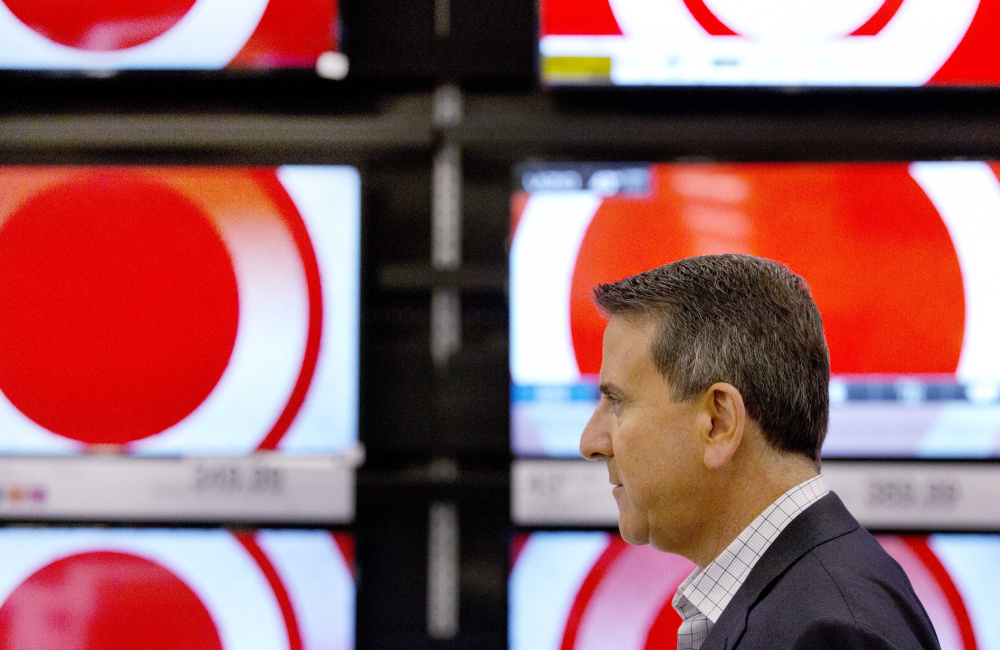MINNEAPOLIS — Matching online prices was once considered a risky proposition for brick-and-mortar retailers. Now it’s the norm.
The newest evidence comes from Target Corp., which is about to expand the number of online competitors it will match prices with to 29 from five.
The updated policy, which goes into effect Thursday, includes giants like Macys.com and Staples.com as well as some online-only retailers such as Diapers.com, Drugstore.com, Newegg.com and Wayfair.com. In addition, Target will for the first time begin matching online prices with warehouse clubs.
“It’s what companies have to do in this new world of retail,” said Brian Yarbrough, a retail analyst with Edward Jones. “Pricing has become so transparent over the last few years.”
In the past, customers had to physically go to different stores to compare prices. But now customers can compare prices on smartphones when they’re standing in the store.
While many retailers have for years matched the prices in local competitors’ print ads, matching online prices is a more recent phenomenon.
But price-matching policies are not as big of a gamble today because brick-and-mortar retailers have been closing the pricing gap with online retailers amid that higher pricing transparency, Yarbrough said. At the same time, experts say less than 5 percent of consumers take retailers up on price matching because it can be a hassle.
On top of that, items have to be exactly the same to be eligible for price matching. So Target may not have as many items it has to match prices with at Sam’s Club and Costco since the latter two tend to sell multi-packs and larger sizes of products, Yarbrough said.
“Even Tide detergent sizes are a little bigger” at the membership clubs compared to those on the shelves at Target, he said.
Last fall, Wal-Mart began matching the prices of online competitors. The list of 30 online retailers it does so with doesn’t include warehouse clubs, but it does include others not on Target’s list such as FamilyDollar.com, DollarGeneral.com, Cabelas.com and Autozone.com.
In figuring out which online retailers to include on its price-matching list, Target looked at which stores have similar assortments as well as the other stores that its customers often shop, said Jenna Reck, a Target spokeswoman. Target previously only matched online prices of Amazon.com, Walmart.com, BestBuy.com, ToysRUs.com and BabiesRUs.com.
“It’s really about peace of mind,” she said. “We already competitively (price) tens of thousands of items across the store. So this is about that instance where somebody else is lower than us.”
Target, like most retailers, doesn’t disclose what percentage of customers ask for price matches. But it does not appear to be a lot since Reck said price matching does not have a material impact on the retailer’s financial results.
Starting next month, Target’s customers will also be able to match prices when making purchases on Target.com. But customers have to call Target.com customer service in order to get the lower price.
“We now have one consistent and seamless policy across the board,” said Reck.
Target’s new policy also includes a longer time frame of 14 days to get a price adjustment, up from seven days.
For Best Buy, matching prices on pricey gadgets with Amazon has been a linchpin of Chief Executive Hubert Joly’s turnaround plan to respond to showrooming. It piloted a price-matching policy for online prices during the 2012 holiday season and made it year-round in early 2013.
Best Buy matches prices of seven online-only retailers such as Amazon.com and TigerDirect.com and will match all local competitors’ online and in-store prices within a 25-mile radius of that store.
Send questions/comments to the editors.



Success. Please wait for the page to reload. If the page does not reload within 5 seconds, please refresh the page.
Enter your email and password to access comments.
Hi, to comment on stories you must . This profile is in addition to your subscription and website login.
Already have a commenting profile? .
Invalid username/password.
Please check your email to confirm and complete your registration.
Only subscribers are eligible to post comments. Please subscribe or login first for digital access. Here’s why.
Use the form below to reset your password. When you've submitted your account email, we will send an email with a reset code.